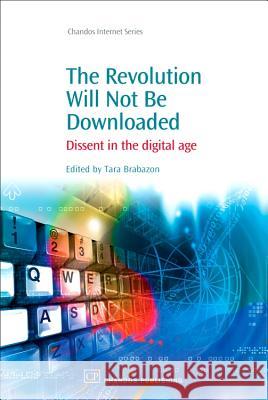The Revoloution Will Not Be Downloaded: Dissent in the Digital Age » książka
The Revoloution Will Not Be Downloaded: Dissent in the Digital Age
ISBN-13: 9781843344599 / Angielski / Miękka / 2008 / 260 str.
This book attacks the often implicit and damaging assumption that 'everyone' is online and that 'everyone' is using online resources within the specified parameters of employers, government and national laws. This book summons a critical Web Studies, asking not only who is using particular applications, but also how and why. This remedial work is required. The concept and label of 'Web 2.0' is part of a wide-ranging suite of assumptions that offer simple answers to difficult questions. The term captures a desire for online collaboration and the sharing of information, performed most visibly through blogs, podcasts and wikis. Other 'products' that capture the Web 2.0 ideology include Google Maps, Facebook, MySpace and Flickr. Within this framework, websites no long hold information but become a platform to connect applications with users. The business applications have gained the most attention - particularly content syndication - but there are also 'political' initiatives overlaying this project including open communication, the sharing of data and the deep linking of web architecture.
- Development of innovative concepts and models to manage the digital divide
- Evocative studies of the digitally excluded and downloading communities
- Attention to digital literacy and online education











